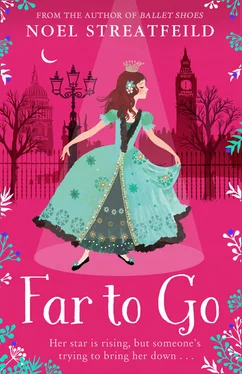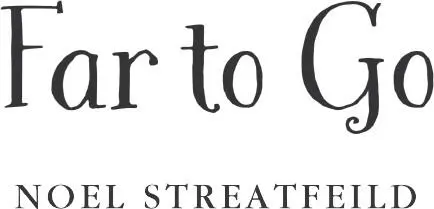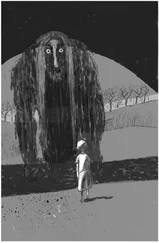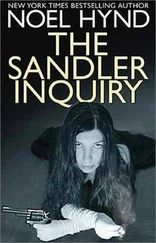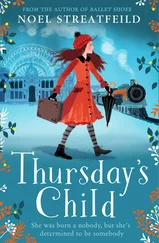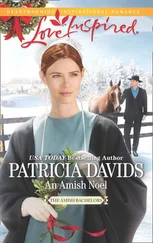
First published in Great Britain by William Collins Sons & Co. Ltd in 1976
This edition published by HarperCollins Children’s Books in 2020
Published in this ebook edition in 2020
HarperCollins Children’s Books is a division of HarperCollins Publishers Ltd,
HarperCollins Publishers
1 London Bridge Street
London SE1 9GF
The HarperCollins Children’s Books website address is
www.harpercollins.co.uk
Text copyright © Noel Streatfeild 1976
Cover illustrations copyright © Sarah Gibb 2020
Cover design © HarperCollins Publishers Ltd 2020
Noel Streatfeild asserts the moral right to be identified as the author of this work.
A catalogue record for this book is available from the British Library.
All rights reserved under International and Pan-American Copyright Conventions. By payment of the required fees, you have been granted the non-exclusive, non-transferable right to access and read the text of this ebook onscreen. No part of this text may be reproduced, transmitted, downloaded, decompiled, reverse engineered, or stored in or introduced into any information storage and retrieval system, in any form or by any means, whether electronic or mechanical, now known or hereinafter invented, without the express written permission of HarperCollins.
Source ISBN: 9780007349616
Ebook Edition © Feb 2020 ISBN: 9780008244071
Version: 2020-02-26
To Sophie, who liked Thursday’s Child
Monday’s child is fair of face,
Tuesday’s child is full of grace,
Wednesday’s child is full of woe,
Thursday’s child has far to go,
Friday’s child is loving and giving,
Saturday’s child works hard for a living,
And the child that is born on the Sabbath day
Is bonny and blithe, and good and gay.
– Anonymous
Contents
Cover
Title Page
Copyright First published in Great Britain by William Collins Sons & Co. Ltd in 1976 This edition published by HarperCollins Children’s Books in 2020 Published in this ebook edition in 2020 HarperCollins Children’s Books is a division of HarperCollins Publishers Ltd, HarperCollins Publishers 1 London Bridge Street London SE1 9GF The HarperCollins Children’s Books website address is www.harpercollins.co.uk Text copyright © Noel Streatfeild 1976 Cover illustrations copyright © Sarah Gibb 2020 Cover design © HarperCollins Publishers Ltd 2020 Noel Streatfeild asserts the moral right to be identified as the author of this work. A catalogue record for this book is available from the British Library. All rights reserved under International and Pan-American Copyright Conventions. By payment of the required fees, you have been granted the non-exclusive, non-transferable right to access and read the text of this ebook onscreen. No part of this text may be reproduced, transmitted, downloaded, decompiled, reverse engineered, or stored in or introduced into any information storage and retrieval system, in any form or by any means, whether electronic or mechanical, now known or hereinafter invented, without the express written permission of HarperCollins. Source ISBN: 9780007349616 Ebook Edition © Feb 2020 ISBN: 9780008244071 Version: 2020-02-26
Dedication To Sophie, who liked Thursday’s Child
Epigraph Monday’s child is fair of face, Tuesday’s child is full of grace, Wednesday’s child is full of woe, Thursday’s child has far to go, Friday’s child is loving and giving, Saturday’s child works hard for a living, And the child that is born on the Sabbath day Is bonny and blithe, and good and gay. – Anonymous
Chapter One: Far to Go
Chapter Two: The Postcard
Chapter Three: The Red Dress
Chapter Four: The Interview
Chapter Five: About the Play
Chapter Six: Katie
Chapter Seven: The Calendar
Chapter Eight: Miss Grey has a Plan
Chapter Nine: Her Ladyship Hears the Story
Chapter Ten: Lessons
Chapter Eleven: Rehearsals
Chapter Twelve: Licences
Chapter Thirteen: A Letter
Chapter Fourteen: Christmas
Chapter Fifteen: Precautions
Chapter Sixteen: A Scare
Chapter Seventeen: Margaret’s Gone!
Chapter Eighteen: The Search Begins
Chapter Nineteen: A Telegram for Liza
Chapter Twenty: The Prisoner
Chapter Twenty-one: The Search Goes On
Chapter Twenty-two: Hope
Chapter Twenty-three: Queen Eliza
Chapter Twenty-four: A Whistle in the Dark
Chapter Twenty-five: The End
Keep Reading …
About the Author
Books by Noel Streatfeild
About the Publisher
Every day when she arrived at the theatre Margaret would feel a sort of blown-up feeling inside because she was so happy. To other people there might not seem much about the theatre to make her happy, for it was only a tent. It had started life – many years before – with a little family circus who had grandly called it ‘The Big Top’. That circus had done well so the owner had bought a bigger tent and had advertised for a buyer for his old one. The advertisement had been seen by Mr Fortescue, actor-manager of the Fortescue Comedy Company, who acted in what was called a fit-up theatre, that is to say, they put up a stage and curtains and acted in any building which could be rented where they could find an audience. It was the proudest moment in Mr Fortescue’s life when in 1895 he had bought the big tent and had had ‘Fortescue Comedy Company’ painted on it.
Margaret could not go to the theatre until the afternoons for she had to attend the local school. She did not mind, for she loved school, not just for the lessons but because she was special there. Not that she needed to be told she was special, for she had always known that she was. Who else had been found in a basket when they were a baby with three of everything, all of the very best quality? Who else had a card sent with her which said, ‘This is Margaret Thursday whom I entrust to your care’? Who else had received fifty-two golden sovereigns each year for her keep? Margaret knew it was not because of this romantic start to her life that the children admired her, it was because they had seen her act Little Lord Fauntleroy and they thought she was wonderful.
Oddly enough, that part of Margaret who was proud of herself did not care if she was admired as an actress or not. Acting was a different thing altogether. It was something that came to you when you stepped on the stage that made you forget everything except the part you were acting, that made you believe what you were saying and turned all the other actors into the people they were meant to be so she never, when on the stage, saw them as the tawdry, seedy, bad actors, atrociously dressed, that they really were.
At the back of the theatre in a small tent Mrs Sarah Beamish spent her days. She was a wonderfully good needlewoman and so was in charge of the wardrobe, though she played character parts or walked on when needed. Sarah had taken Margaret under her wing when she had joined the company four months before and, in innumerable ways, had not only seen after her but, when necessary, fought for her welfare. It was Sarah Beamish who saw she attended school. Her fat little figure had waddled into Ida Fortescue’s – the leading lady and manageress – dressing-tent a few nights after Little Lord Fauntleroy had become part of the repertory. Ida was taking off her make-up and did not want to be interrupted.
Читать дальше
